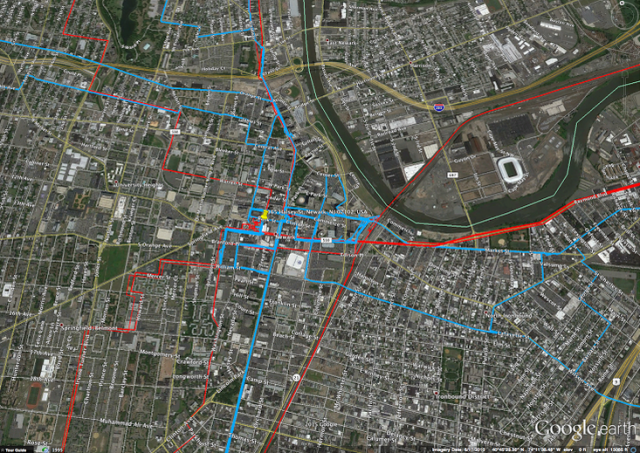“Newark is where the Internet comes up for air,” said an excited Don Katz, CEO of Audible.com, at the company’s Newark headquarters last week. He is referring to the vast square miles of newly installed fiber optics networks currently running throughout Brick City.
Fiber optic networks are some of the best-performing and trusted communications technology today. The network utilizes specialized cables that use small pulses of light to transfer data and video signals. Oftentimes, these networks offer more energy than the user actually requires.
Katz unveiled a plan for attracting the nation’s up and coming tech startups to Newark citing “lightning fast Wi-Fi” and an undeniable accelerator space for small companies and big ideas looking for the best chance for success.
As a city that is only a few miles from Manhattan, Newark is an ideal space for many corporations to set up base such as Prudential, PSEG, and Panasonic Corporation of North America. Over the decades, as these acclaimed companies have established their headquarters they have been encouraged by the city to install more than necessary fiber networks throughout the ground. As a result, there is a great deal of “dark fiber” or unused network energy all throughout the city of Newark.
Newark Fiber is a public-private partnership between the Newark Community Economic Development Corporation and Gigxero, a firm that aid in helping companies establish high-speed networks.
The typical speed for Internet using Newark Fiber is about 10 gigabits per second, which is 250 times the average speed of any broadband network in New Jersey. Surprisingly, this speed is being offered to tech companies at no cost in exchange for setting up shop in Newark at any of the approved incubators. This is only possible, because the fiber network is easy to tap into; there are no installation costs and there is just simply so much dark fiber being wasted.
Seth Wainer, Newark’s chief information officer, believes Newark may even become a better technology hub and startup space than Brooklyn based on the city’s capacity to power such innovative initiatives alone. “If we can do it in 10, 20, 50 buildings in Newark, there’s quite a bit then that Newark has to offer to the next generation of companies, whether they’re engineering firms, law firms or tech companies that Brooklyn really doesn’t have.”
In fact, the typical 1 gigabit capacity in New York City can cost around $3,000 a month while Newark Fiber only asks for $100-$500 a month for the same capacity. He even pointed out that many new technologies ,such as 3D printing–almost a staple in the modern tech field– that may take a lot of bandwidth, will be an easy task with the use of Newark Fiber. “In practicality, what it means is you never have to worry about what you’re doing requiring more juice.”
To most people, Newark is just an “in-between”; many come and go. Newark is oftentimes just seen as an airport site close to New York City. Newark’s often dangerous and dark history of crime and bad government overtake all other impressions. However, Senator Cory Booker and Mayor Ras Baraka have taken initiative in overturning these inaccurate impressions.
NJIT itself can take action in changing these perceptions even among the student body by making Newark-based internships more readily available. This can be a reality if Newark Fiber does indeed attract the next big companies to Brick City. Only time will tell if Newark can turn around its originally repulsive demeanor to the next Silicon Valley.




























Rob • Dec 29, 2016 at 8:36 am
Way to go Seth Wainer in helping Newark attract new businesses that will generate new jobs and support additional local businesses and untold families! This is the way to create the foundation to grow Newark!